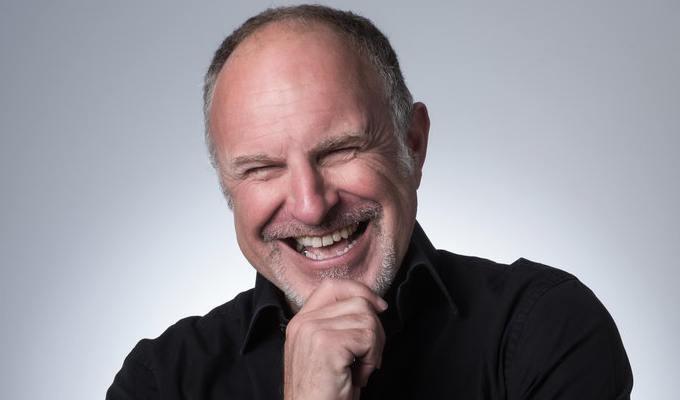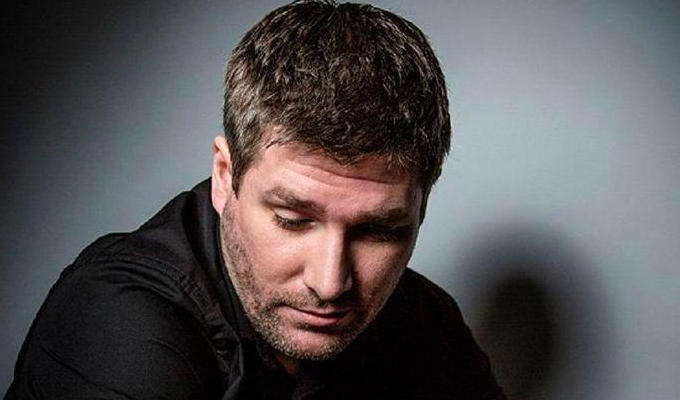Third time's a charm...
Chris Hallam sings the praises of Blackadder The Third
‘I want to be remembered when I'm dead. I want books written about me. I want songs sung about me. And then, hundreds of years from now, I want episodes of my life to be played out weekly at half past nine by some heroic actor of the age.’ (Edmund Blackadder, Dual and Duality).
It has now been a full quarter-century since the screening of Blackadder The Third. Under normal circumstances, the anniversary of the third series of anything would not be a cause for comment. Yet Blackadder is not a normal programme and the third series alone must rank as one of the best sitcoms of the Eighties in its own right.
Continuing the slow social decline of the Blackadders (from 15th Century royalty in the first series to a 20th Century Army officer by the fourth), Blackadder the Third, sees Edmund (Rowan Atkinson again) reduced to the role of butler to the idiotic foppish Prince Regent played by the then still-up-and-coming twenty something Hugh Laurie. Despite having played two different roles in Blackadder II, as the drunken innuendo obsessed Simon ‘Farters’ Partridge (‘Sounds a bit rude doesn’t it?’) in Beer and the cast’s Teutonic nemesis Mad Prince Ludwig in the final episode Chains (‘Yes! I was one of the sheep!’), Laurie was reportedly tremendously nervous about taking on the part.
It’s easy to see why. The standard set by the second series had been incredibly high and with the regular cast slimmed down (Miranda ‘Queenie’ Richardson and Tim ‘Lord Percy’ McInnerny appear in only one episode each in new roles), a lot of weight was on Laurie and Atkinson’s shoulders, even with the excellent Tony Robinson returning as Baldrick or rather Mr S. Baldrick. The introduction of a frankly fairly lame new character, pie shop proprietor Mrs Miggins (Helen Atkinson-Wood), a character referred to in Blackadder II but never seen, frankly doesn’t help the series much.
Thankfully virtually everything else does. Hugh Laurie is perfect as Prince George, a good natured clot who seems incapable of recognising his butler’s insults even when he says them directly to his face. The role would in fact be the perfect preparation for Laurie’s most successful Nineties role as Bertie Wooster, opposite a less hostile servant.
It is still not the best series of Blackadder, a position which still belongs to Blackadder II. Historically, it’s a bit confused – George is repeatedly referred to as the Prince Regent, a position he didn’t hold until 1811, when he was in his fifties. Yet virtually everything else in terms of costumes and references suggests its set in the 1780s or 1790s, while Johnson’s dictionary was published before the Prince was actually born.
Despite a few good lines and an excellent cameo by the late political reporter Vincent Hanna, the election-themed opening episode is perhaps also bit iffy by Blackadder standards. A few episodes also rely a bit too heavily on fictional versions of real characters such as Dr Johnson (Robbie Coltrane) and the Duke of Wellington (Stephen Fry) being homicidal maniacs. They were not.
Happily, though, most of the series is sublime, reaching a peak with the brilliant closing episodes Amy and Amiability and Dual and Duality. Blackadder’s run-in with a squirrel-hating highway woman and a memorable scene in which Hugh Laurie’s Prince is repeatedly punched make up two of the best Blackadders ever produced.
And (is a spoiler alert necessary 25 years on?) the series uniquely sees a happy ending for Blackadder himself, with the butler rather confusingly replacing George as heir to the throne. Are we to assume all subsequent royals are in fact descended from him?
It hardly matters. What’s undeniable is that this remains one of the finest British sitcoms ever produced.
Published: 15 Oct 2012






